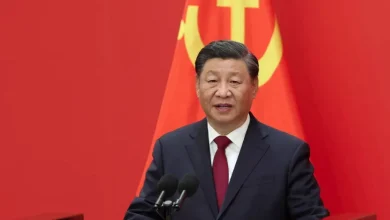COTU Issues Demands After Chinese National Abuses Kenyan Workers

The Central Organization of Trade Unions (COTU-K) has called for the immediate deportation of Xiao Jianzhong, a Chinese national accused of exploiting and abusing Kenyan workers at an Export Processing Zone (EPZ) facility.
In a press release dated November 12, 2025, COTU Secretary General Francis Atwoli requested that the Ministry of Foreign and Diaspora Affairs, through Cabinet Secretary Musalia Mudavadi, take swift action against Xiao Jianzhong, citing gross violations of Kenyan labour laws and human rights.
Xiao’s Misconduct
According to COTU, Xiao, who holds Passport No. EK011147 and KRA PIN A002278066C, has subjected employees to disgraceful working conditions that go against Kenya’s labour regulations.
Reports from the Tailors and Textile Workers Union, which is fully affiliated with COTU-K, indicate that workers under his supervision have endured long hours without compensation for overtime, denial of basic human needs, and psychological intimidation.
“Such conduct demonstrates clear disregard for the dignity of Kenyan workers, their representatives, and our national sovereignty.”
COTU further claims that Mr. Xiao recently assaulted the General Secretary of the Tailors and Textile Workers Union, escalating concerns over physical abuse and disregard for lawful engagement with labour representatives.
“This is a serious breach of mutual respect and cooperation expected between foreign investors and Kenyan authorities.”
COTU Issues Demands
The union has urged the government to initiate deportation proceedings under the Kenyan Immigration Act and Labour Laws.
It also called on the Ministry to communicate the matter to the Chinese diplomatic mission to prevent similar incidents in the future.
“We further request that the Ministry communicate the matter to the relevant Chinese diplomatic mission to ensure that such conduct is never repeated by foreign nationals operating within our borders. We cannot allow foreign nationals to undermine our sovereignty and the rights of our workers.”
COTU warned that failure to act could embolden other investors to disregard Kenya’s laws, jeopardizing Kenya’s efforts to maintain fair labor practices.
The organization reaffirmed its readiness to provide further details and witness accounts to support government action.
The Ministry of Foreign and Diaspora Affairs has yet to issue an official response to COTU’s demands.
However, the matter is expected to spark debate on the balance between attracting foreign investors and safeguarding local labour standards.
For now, COTU insists that deportation is the only way to send a strong message that Kenya will not tolerate abuse of its workforce.
Labour Conditions in EPZs
This development comes amid growing scrutiny of labour conditions in EPZs, where complaints of exploitation have persisted despite regulatory oversight.
Labour experts argue that while foreign investment is vital for economic growth, it must align with Kenya’s legal framework and respect workers’ rights.
Kenyan NGOs and rights groups have repeatedly flagged harsh conditions in EPZs where an estimated 36,000–90,000 workers face long hours, short-term contracts, and denial of basic rights like maternity leave and unionization.
Workers often endure intimidation and penalties for mistakes, with little chance for justice.
In May 2025, the Senate Committee on Labour launched a formal inquiry into EPZ firms after petitions citing sexual harassment, union suppression, ethnic discrimination, and unsafe work environments.
Reports from Athi River and Mombasa EPZs detail underpayment, bribery in recruitment, retaliatory dismissals, and unsafe conditions.
Workers have staged protests demanding fair treatment, which were sometimes met with police crackdowns, further fuelling scrutiny.
While the Export Processing Zones Authority (EPZA) insists that labour laws apply and promises reforms, critics argue that enforcement remains weak.
Recent parliamentary hearings and court cases have also highlighted the tension between investor-friendly policies and worker protections.





